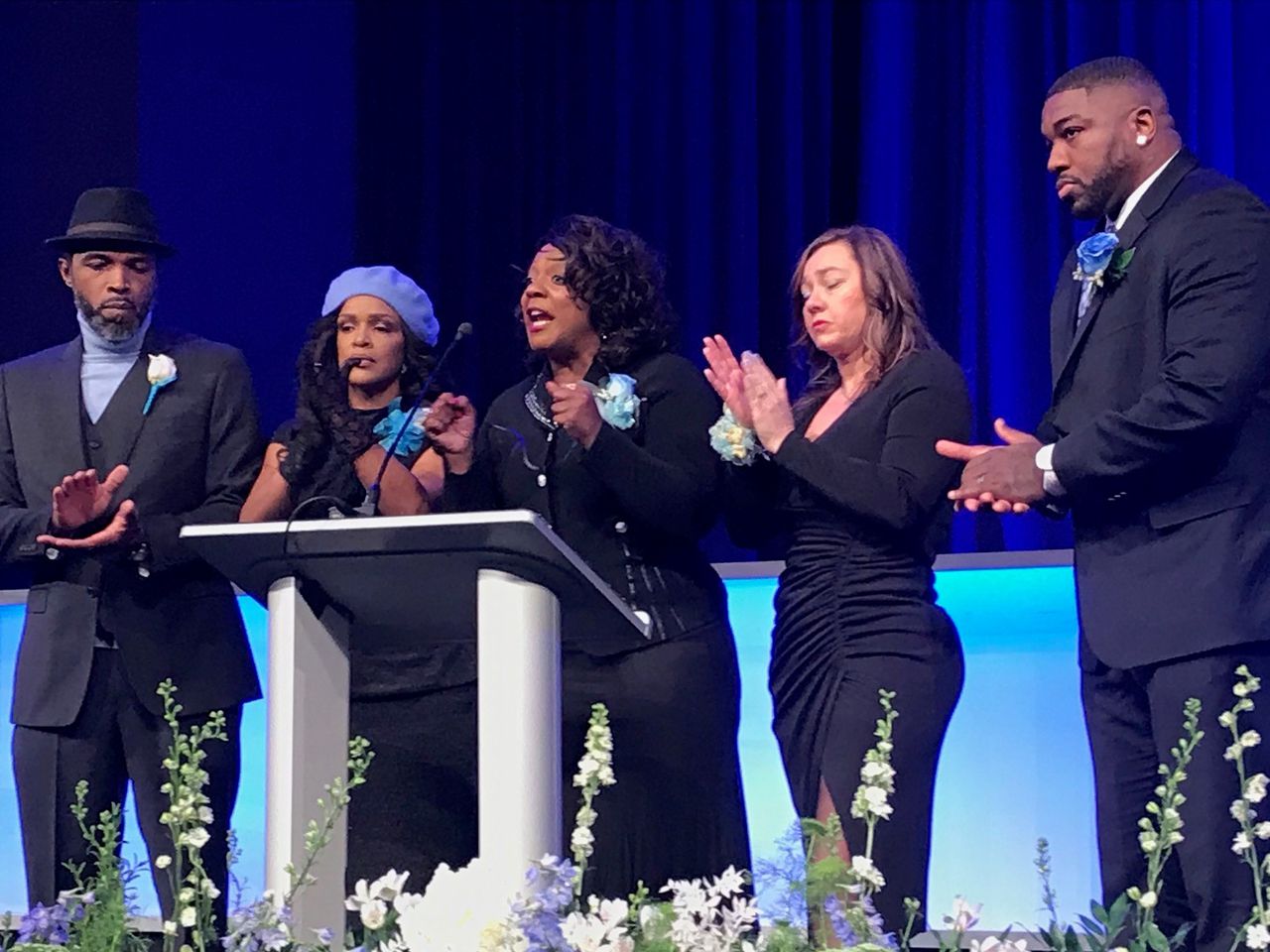Aniah Blanchard’s father, stepmother: Amendment 1 ‘will save lives’
This is an opinion column.
Aniah Law
Yashiba Blanchard can’t recall the last time she went to a gas station after 4:30 p.m.—certainly not to a Chevron station. “I’m afraid,” she is saying. “That stuff is scary.”
Blanchard’s fear is understandable. And not likely unique.
The Birmingham attorney’s stepdaughter was Aniah Blanchard, the 19-year-old college student who was fatally abducted from a Chevron station in Auburn, Alabama three years ago last month, and whose remains were found more than a month later in the woods off County Road 2 in Shorter.
“If you’ll attack her,” Blanchard says, “you’ll attack anybody.”
Blanchard and her husband, Elijah, Aniah’s biological father, reached out to re-emphasize their support for Amendment 1—Aniah’s Law, one of 10 constitutional amendments Alabama voters will decide on November 8. It would add several felony charges to Section 16, which currently affirms the right to bail except for those charged with capital murder. The law, sponsored by Rep. Chip Brown, R-Mobile, is a political unicorn; it passed the House and Senate without a single nay vote. If approved by voters, charges ineligible for bail, at a judge’s discretion, would be extended to include murder, kidnapping, rape, sodomy, domestic violence, human trafficking, burglary, arson, and robbery, all in the first degree, as well as aggravated child abuse, sexual torture, and terrorism.
Related: Amendment 1 adds charges for which defendants can be held without bail
“This law directly impacts our youth, women, the elderly, and those who cannot protect themselves,” Yashiba says. “Reoffenders are ruining people’s lives. If they can’t get the job done the first time, they try it a second or third time. By then, they’ve drawn in three families and ruined these people’s lives. Parents will never rest, marriages are ruined, and relationships with siblings are ruined. It’s just awful.”
Aniah’s biological mother and stepfather have also lent their voices in support of Amendment 1.
Parents of Aniah Blanchard are joined by Rep. Merika Coleman, who announces Alabama state legislature will work to create an Aniah Blanchard alert during its next session.
Related: Three years after Aniah Blanchard’s fatal abduction, father shares: ‘I will never have rest’
Ibraheem Yazeed was arrested and charged with Aniah’s kidnapping and murder and is in a Lee County jail awaiting trial. At the time of the crime, he was free on a $280,000 bond after being charged with similar offenses—kidnapping, robbery, and attempted murder—just nine months before Aniah was abducted.
“She was one of our future leaders,” Yashiba says, “a future president or vice president, a future doctor, a future lawyer, a future judge, a future nurse, a future educator. Her life was taken in the blink of an eye. Could it be because someone financed [Yazeed’s] criminal life with enough money to post bail? If you have multiple felony charges, there’s no way in hell you should be out on bail. If the bill passes, that won’t happen again.”
Elijah was “livid” upon learning Yazeed was free on bail; his anger, understandably, has not subsided, understandably.
“He really didn’t have any business being out,” Elijah says. “He was in a public place, in a school town, [among] the masses with everybody else. These people blend in with us. They blend in with regular people. They could be at church with us. They could be at the grocery store with us. You don’t know who you’re in line behind at Walmart. You could be behind someone who committed murder, rape, or sex trafficking, and they’re out on bond. You never know. They camouflage themselves and we don’t have any idea know who they are. We depend on the judicial system to protect us but how can we be protected when we don’t know?
“[Yazeed] was like something evil, he was seeking to destroy.”
As African Americans, the Blanchards are mindful of the myriad inequities in the judicial system that contribute to mass incarceration and often cause the burdens of bail to bear more heavily on Blacks. Particularly so for Yashiba, as an attorney.
“You’ve got socio-economic statuses that divide criminals,” she says Yashiba. “Bond separated the masses from the money. You have a lot of individual criminals doing criminal activities that have access to money when the average person won’t. That revolving door will stop. It won’t matter how much money you have you would not be able to leave that jail until you’re proven guilty or innocent.”
“My daughter was just somewhere getting a snack and this guy saw her as an opportunity,” Elijah adds. “It can’t do anything for us as the Blanchett family, but it can do something for other parents. It will help save somebody’s life, so parents won’t have to receive the call we received.”
More columns by Roy S. Johnson
Long overdue convening of Clotilda’s desperate descendants is core to Africatown revival
Miles grad makes largest alum donation in school history, hopes to be catalyst for giving to HBCUs
Former Auburn star on Tuberville ‘reparation’ remarks: ‘Unnecessary, wrong, ugly’
Alabama’s SCOTUS lawyer gets critical race history lesson from Ketanji Brown Jackson
Alabamians are struggling to eat; state officials must ensure all are fed.
